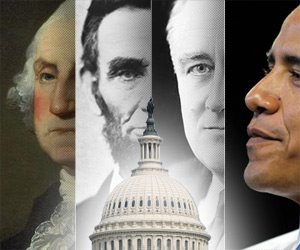Becker and Posner have a new blog post up on "America's Decline". Becker leads, and Posner responds. It doesn't delve too deeply into anything, but these are smart guys, so it's always interesting to hear what they have to say.
I responded to Posner's comment - which I think is a little better - with much the same argument that I use in my "Folk Economics" post from a couple weeks back.
In other news, "The Dark Knight" is an amazing movie - I highly recommend you see it in theaters. Very dark, as everyone is saying. I've also heard people say that it wouldn't be as big of a deal if Heath Ledger hadn't died. This is not true either, by any stretch. This movie would have launched Ledger's career out of the "pretty boy" roles he's used to and into a whole new range of potential characters. They said that "Brokeback Mountain" demonstrated that Ledger could play weightier roles than he had in the past, but trust me - gay cowboys don't hold a candle to this new Joker. He stole the show.
I also saw the preview for "The Watchmen". I've never read the graphic novel, but now I'm intrigued. It's really confusing to understand exactly what's going on from the preview, though. I'll need to educate myself.
Disbar Mr. Jones
3 hours ago


3 comments:
Interesting thoughts from Becker and Posner... it made me think a lot about Rome, actually, which you brought up. My thoughts were of course more geared towards my own work; I was wondering about the idea of "decline" through the lens of Augustine's City of God. In particular, what decline means from different vantage points and how citizens should react to decline in their society. I think this question can be answered differently depending on what sort of investment you have in your society, so a religious person, especially those with sectarian proclivities, may be duty bound not to become too concerned about the decline except as a sideline spectator (or railing prophet, as the case may be).
Sorry, not exactly on topic. Thanks for the link, though.
No, but that's actually an interesting thought. It seems like we're always scraping around for the lowest common denominator between us that might be paper fodder, and I never thought of "the Augustinian perspective on civilizational decline".
Honestly, I've been thinking of this a lot lately. Its not that I'm pessimistic at all about our prospects - I think we're going to dominate this planet for a good long time to come. But between international terrorism on one hand and the rise of China and the EU on the other, this generation is going to face some major challenges. Similar to the USSR, I guess - but there really wasn't any chance that the USSR would eclipse us. there is a possibility that the EU might eclipse us, or China in the further distant future.
Does Augustine address these issues directly, or does it just pervade what he writes because it was the times?
It's hard to tell with Augustine. His thought is so crusted over these days with cafeteria style pickings-and-choosings of his readings by interpreters of various ideological commitments. In the City of God what he means to address is (in the first part at least) a defense of Christians against pagans who say that worship of the Christian God is what caused Rome to fall. He talks a lot about virtue and the foundations of a society, and I think that's where you would get the direct thoughts about cultural decline. He's in conversation with the classical authors about great Roman leaders and the example they set for contemporary Romans, who live up to or fall short of the ideal. He also talks about the desire for virtue, glory, and domination as they relate to each other, and how the Roman pursuit of these in inordinate fashion had led to its demise.
As to the US, I think you're right. While (as you mention about China) there will be increased international competition (I'm thinking of the silicon revolution in Eastern Europe as well), we're still seeing people flood to the US for education; the US is still central for dissemination of information around the world, and the world is still happy to follow something as pointless as the 2008 election. I guess what I'm saying is that, right or wrong, there's still somewhat of an America fixation that I think signals our central place in the world; in may not be as economically dominant in relative terms, but as you point out, this will also make things more stable.
As far as terrorism goes, I think it's not so much terrorism as our inability to respond to it (as well as our mistakes during the Cold War that led to it). I was listening to NPR this morning where an author talked about his book on the Iraq War, and he made the point of how unfortunate it is that America really botched its moral capital in how it approached Iraq, precisely when our moral capital was valuable for the global situation. I think that if we had done the job right against Al Qaeda in Afghanistan and not been distracted, things would have been much better for our place in the world, even given Cold War meddling that has us on the shit list of a number of countries. It's challenges such as terrorism that can strengthen the US as a society if we respond virtuously to the dilemma.
Post a Comment